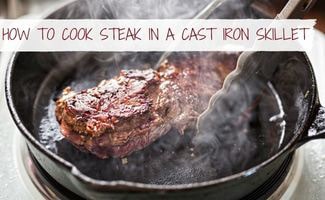What is the Best Natural Shampoo?
 There are plenty of choices in natural shampoos, so you may have to experiment with several brands and products before you find the best one for you. Not all natural shampoos are purely “natural” because it is the artificial additives that make most commercial (and natural) shampoos give hair its shine, create volume, and produce a sudsy lather. Therefore, it is important to know about the common chemical ingredients found even in many “natural” shampoos before you make your choice. It is also important to know what natural ingredients best treat specific hair needs.
There are plenty of choices in natural shampoos, so you may have to experiment with several brands and products before you find the best one for you. Not all natural shampoos are purely “natural” because it is the artificial additives that make most commercial (and natural) shampoos give hair its shine, create volume, and produce a sudsy lather. Therefore, it is important to know about the common chemical ingredients found even in many “natural” shampoos before you make your choice. It is also important to know what natural ingredients best treat specific hair needs.
Criteria for Finding The Best Natural Shampoo.
The best natural shampoo is the one that best meets these two basic criteria:
- Contains the least amount of artificial additives
- Meets the specific needs of your hair
Chemical Additives in Shampoo
Nearly all shampoos on the market contain at least two chemical ingredients, even natural shampoos: propylene glycol, and sodium lauryl sulfate (SLS). Propylene Glycol is the ingredient that makes hair feel silky; and SLS is what creates a nice lather of soapy bubbles when you mix it with water. Other common additives include alpha-hydroxy acids, formaldehyde, and methyl methacrylate. The reason manufacturers can include these and other chemical ingredients in “natural” shampoos is because there are currently no legal guidelines or boundaries to control the ingredients in shampoos and other hygiene and beauty products.
Dangers of Chemicals in Shampoo
The dangers associated with these chemicals include skin and eye irritations, allergic reactions, headaches, and even potential impairment to internal organs such as the heart, liver, and brain as well as the immune system. Some chemical additives can increase the skin’s sensitivity to the sun, thereby posing a higher risk for skin cancer. When different products are used together such as shampoo and conditioner, or shampoo and other hair care products, carcinogenic compounds can form causing further potential for health risks.
Remember, these are all chemical additives found in many “natural” shampoos. You can steer clear of these chemical additives if you make your own natural shampoo. To make a natural shampoo that best meets the needs of your hair, include ingredients that address the special characteristics of your hair.
Natural Shampoo Ingredients
Sage: Sage contains an antioxidant that works as an antibacterial. This serves to prevent damage to hair from the harsh elements in the environment.
Rosemary: Rosemary helps to strengthen the hair follicles. This is particularly good for thinning or balding problems.
Nettles: Nettles purify and stimulate the blood flow. As a result, nettles support hair growth. This is also good for thinning or balding problems.
Lavender: Lavender is good for problems with dandruff as it helps to reduce the signs of a flakey scalp.
Apple Cider Vinegar: Apple cider vinegar strips residual build-up of commercial products and the effects of air pollution. The acidic composition of apple cider vinegar balances the alkaline levels. It also serves as an antibacterial so it helps protect the hair from damage.
Aromatic Extracts: Lemon, lavender, and vanilla extracts leave the hair with a fresh, clean aroma without the harmful chemicals found in other aromatic additives.
So What is the Best Natural Shampoo?
Experiment with different natural shampoos to find the one that is best suited for your hair. You may find however, that the best natural shampoo is the one that comes from your own kitchen. Making your own natural shampoo is the only way to be sure that all the ingredients are 100% natural. Keep in mind, however, these basic rules:
- If you have dry hair, you will need more essential oils;
- If your hair is naturally oily, cut down on the amount of oils;
- While natural shampoos will not lather like commercial shampoos, the cleansing qualities are not compromised (ie. natural shampoos still clean your hair just as much as chemical-based shampoos).



